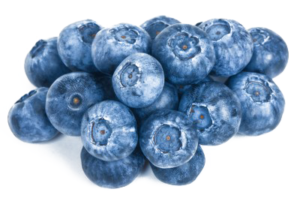Two related stories that look at children, exercise, and academic performance. Boys, in general, have higher activity levels than girls, and they need exercise and recess to be able to get through the rest of the school day. Sitting quietly in class and doing classwork is hard when one has lots of excess energy. In fact, sitting still for hours on end is NOT healthy in any way for anyone! Fidget, fidget, fidget... From Science Daily:
High levels of physical activity linked to better academic performance in boys
Higher levels of physical activity are related to better academic achievement during the first three school years, particularly in boys, research shows. For instance, boys with higher levels of physical activity, and especially walking and bicycling to and from school, had better reading skills than less active boys....The findings of the present study highlight the potential of physical activity during recess and participation in organized sports in the improvement of academic achievement in children.
Instead of medicine, why aren't doctors prescibing exercise? From The Atlantic:
Exercise Is ADHD Medication
Physical movement improves mental focus, memory, and cognitive flexibility; new research shows just how critical it is to academic performance.
...More insipid but also more clearly critical to addressing what's being called the ADHD epidemic is plain old physical activity.
This morning the medical journal Pediatrics published research that found kids who took part in a regular physical activity program showed important enhancement of cognitive performance and brain function. The findings, according to University of Illinois professor Charles Hillman and colleagues, "demonstrate a causal effect of a physical program on executive control, and provide support for physical activity for improving childhood cognition and brain health." If it seems odd that this is something that still needs support, that's because it is odd, yes. Physical activity is clearly a high, high-yield investment for all kids, but especially those attentive or hyperactive. This brand of research is still published and written about as though it were a novel finding, in part because exercise programs for kids remain underfunded and underprioritized in many school curricula, even though exercise is clearly integral to maximizing the utility of time spent in class.
Earlier this month, another study found that a 12-week exercise program improved math and reading test scores in all kids, but especially in those with signs of ADHD.
Last year a very similar study in the Journal of Attention Disorders found that just 26 minutes of daily physical activity for eight weeks significantly allayed ADHD symptoms in grade-school kids. The modest conclusion of the study was that "physical activity shows promise for addressing ADHD symptoms in young children."
"If physical activity is established as an effective intervention for ADHD," they continued, "it will also be important to address possible complementary effects of physical activity and existing treatment strategies ..." Which is a kind of phenomenal degree of reservation compared to the haste with which millions of kids have been introduced to amphetamines and other stimulants to address said ADHD. The number of prescriptions increased from 34.8 to 48.4 million between 2007 and 2011 alone. The pharmaceutical market around the disorder has grown to several billion dollars in recent years while school exercise initiatives have enjoyed no such spoils of entrepreneurialism.
Over all, the pandemic of physical inactivity, as Hillman and colleagues put it in their Pediatrics journal article today, is "a serious threat to global health" responsible for around 10 percent of premature deaths from noncommincable diseases.
John Ratey, an associate professor of psychiatry at Harvard, suggests that people think of exercise as medication for ADHD. Even very light physical activity improves mood and cognitive performance by triggering the brain to release dopamine and serotonin, similar to the way that stimulant medications like Adderall do.
 So many of us seem to not get enough sleep, and then there are those that sleep and sleep. But .. it seems the sweet spot for sleep and our brain health (cognitive performance) is about 7 to 8 hours - at least according to a large study from Canadian researchers at Western University. People reporting typically sleeping 4 hours or less a night had the most impairments in how they performed on a variety of cognitive tests - equivalent to aging 8 years.
So many of us seem to not get enough sleep, and then there are those that sleep and sleep. But .. it seems the sweet spot for sleep and our brain health (cognitive performance) is about 7 to 8 hours - at least according to a large study from Canadian researchers at Western University. People reporting typically sleeping 4 hours or less a night had the most impairments in how they performed on a variety of cognitive tests - equivalent to aging 8 years.
 Well, it looks like the researchers devised a nutritional supplement, which they then tested and found beneficial effects on the thinking processes of older adults - so some bias there, but still interesting. What was in the supplement they called NT-020? Extracts of blueberries, green tea, vitamin D3, and amino acids such as carnosine. Science Daily:
Well, it looks like the researchers devised a nutritional supplement, which they then tested and found beneficial effects on the thinking processes of older adults - so some bias there, but still interesting. What was in the supplement they called NT-020? Extracts of blueberries, green tea, vitamin D3, and amino acids such as carnosine. Science Daily: